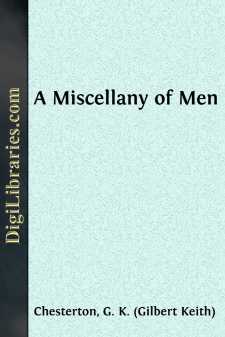Categories
- Antiques & Collectibles 13
- Architecture 36
- Art 48
- Bibles 22
- Biography & Autobiography 813
- Body, Mind & Spirit 142
- Business & Economics 28
- Children's Books 14
- Children's Fiction 11
- Computers 4
- Cooking 94
- Crafts & Hobbies 4
- Drama 346
- Education 46
- Family & Relationships 57
- Fiction 11828
- Games 19
- Gardening 17
- Health & Fitness 34
- History 1377
- House & Home 1
- Humor 147
- Juvenile Fiction 1873
- Juvenile Nonfiction 202
- Language Arts & Disciplines 88
- Law 16
- Literary Collections 686
- Literary Criticism 179
- Mathematics 13
- Medical 41
- Music 40
- Nature 179
- Non-Classifiable 1768
- Performing Arts 7
- Periodicals 1453
- Philosophy 64
- Photography 2
- Poetry 896
- Political Science 203
- Psychology 42
- Reference 154
- Religion 513
- Science 126
- Self-Help 84
- Social Science 81
- Sports & Recreation 34
- Study Aids 3
- Technology & Engineering 59
- Transportation 23
- Travel 463
- True Crime 29
What I Saw in America
Categories:
Description:
Excerpt
What is America?
I have never managed to lose my old conviction that travel narrows the mind. At least a man must make a double effort of moral humility and imaginative energy to prevent it from narrowing his mind. Indeed there is something touching and even tragic about the thought of the thoughtless tourist, who might have stayed at home loving Laplanders, embracing Chinamen, and clasping Patagonians to his heart in Hampstead or Surbiton, but for his blind and suicidal impulse to go and see what they looked like. This is not meant for nonsense; still less is it meant for the silliest sort of nonsense, which is cynicism. The human bond that he feels at home is not an illusion. On the contrary, it is rather an inner reality. Man is inside all men. In a real sense any man may be inside any men. But to travel is to leave the inside and draw dangerously near the outside. So long as he thought of men in the abstract, like naked toiling figures in some classic frieze, merely as those who labour and love their children and die, he was thinking the fundamental truth about them. By going to look at their unfamiliar manners and customs he is inviting them to disguise themselves in fantastic masks and costumes. Many modern internationalists talk as if men of different nationalities had only to meet and mix and understand each other. In reality that is the moment of supreme danger—the moment when they meet. We might shiver, as at the old euphemism by which a meeting meant a duel.
Travel ought to combine amusement with instruction; but most travellers are so much amused that they refuse to be instructed. I do not blame them for being amused; it is perfectly natural to be amused at a Dutchman for being Dutch or a Chinaman for being Chinese. Where they are wrong is that they take their own amusement seriously. They base on it their serious ideas of international instruction. It was said that the Englishman takes his pleasures sadly; and the pleasure of despising foreigners is one which he takes most sadly of all. He comes to scoff and does not remain to pray, but rather to excommunicate. Hence in international relations there is far too little laughing, and far too much sneering. But I believe that there is a better way which largely consists of laughter; a form of friendship between nations which is actually founded on differences. To hint at some such better way is the only excuse of this book.
Let me begin my American impressions with two impressions I had before I went to America. One was an incident and the other an idea; and when taken together they illustrate the attitude I mean. The first principle is that nobody should be ashamed of thinking a thing funny because it is foreign; the second is that he should be ashamed of thinking it wrong because it is funny. The reaction of his senses and superficial habits of mind against something new, and to him abnormal, is a perfectly healthy reaction. But the mind which imagines that mere unfamiliarity can possibly prove anything about inferiority is a very inadequate mind....












